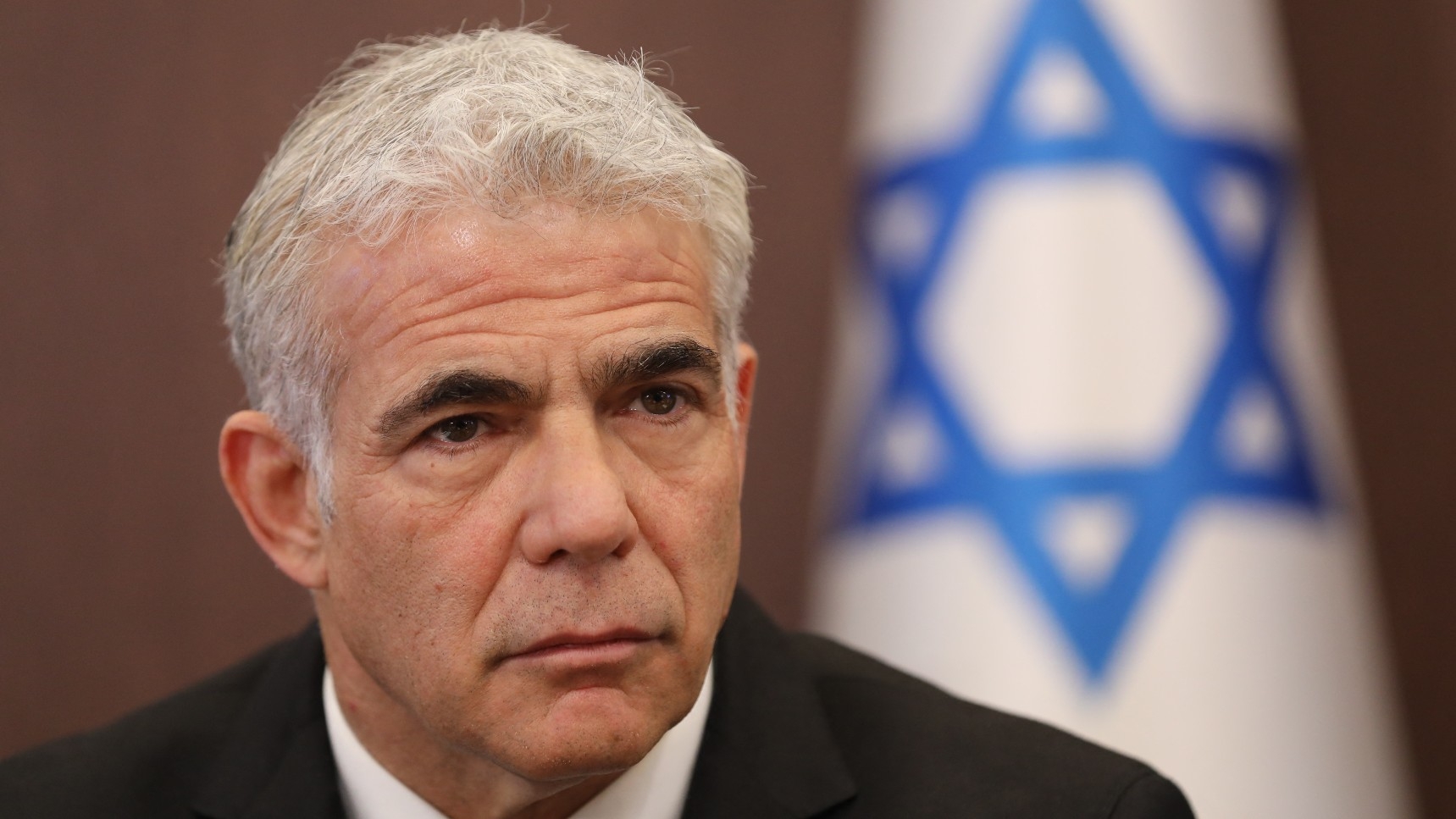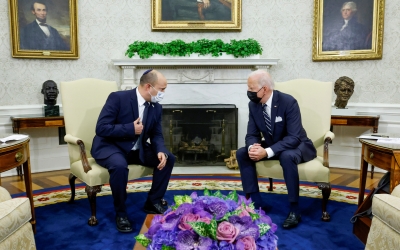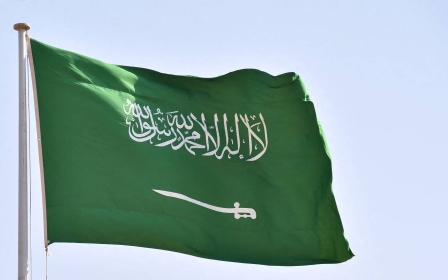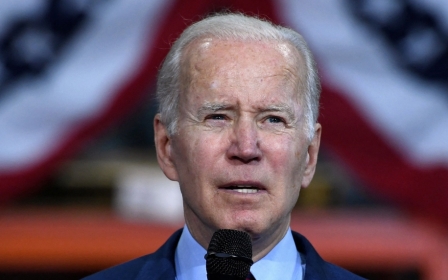Israel says working with US, Gulf states on normalisation with Saudi Arabia

Israel is coordinating with the United States and Gulf nations on a process to normalise relations with Saudi Arabia, Foreign Minister Yair Lapid said on Monday.
"We believe that it is possible to have a normalisation process with Saudi Arabia. It's in our interest," Lapid told Army Radio.
"We've already said that this is the next step after the Abraham Accords, to talk about a long and careful process," he added, referring to the 2020 US-brokered normalisation deals Israel reached with the United Arab Emirates, Bahrain and Morocco.
Israel and Saudi Arabia do not have official diplomatic relations, but Crown Prince Mohammed bin Salman, also known as MBS, met secretly with then-Israeli Prime Minister Benjamin Netanyahu in the kingdom in 2020, according to several Israeli media reports at the time.
Saudi officials have repeatedly said the kingdom remained committed to the Arab Peace Initiative, which conditions recognising Israel on the establishment of an independent Palestinian state within the 1967 borders.
Lapid warned that normalising relations with the kingdom would take time, with progress coming in small steps. He said that both countries have major security interests at stake.
"This won't happen the same way it did last time,” Lapid said in reference to the timeframe in which the previous agreements were announced. “We won’t wake up one morning suddenly and it will be a surprise."
"It could be that three foreign ministers after me, someone will be standing on the podium and will celebrate this - which is completely fine. This is how one runs a state," Lapid added.
In 2020, Israel signed US-brokered normalisation deals with the UAE, Bahrain, Morocco, and Sudan, in what became known as the Abraham Accords. The deals broke the long-standing consensus in the Arab world that normalisation with Israel would only come with major concessions for Palestinians.
In April 2021, Saudi Foreign Minister Faisal bin Farhan said in an interview with CNN that a normalisation deal with Israel would be "extremely helpful" and bring "tremendous benefits" to the Middle East, but said it couldn't happen without addressing "the issue of the Palestinians".
Biden's plans to visit Saudi Arabia
But Lapid's comments come amid reports last week that several officials have visited Saudi Arabia for talks - including boosting Saudi-US ties and the possibility of normalising ties with Israel.
According to the Axios news site, the trip was part of efforts to finalise an agreement on the transfer of the Red Sea islands of Tiran and Sanafir from Egypt to Saudi Arabia.
Talks are ongoing to finalise the deal, which could see security arrangements agreed upon between Israel and Saudi Arabia and create warm ties between the two countries for the first time ever.
The negotiations, spearheaded by White House Middle East coordinator Brett McGurk, aim to formalise the transfer of Tiran and Sanafir islands - strategically located at the sea passage to the ports of Aqaba in Jordan and Eilat in Israel - from Egypt to Saudi Arabia.
The report said among the proposed steps are allowing Israel to use Saudi airspace for all flights, not just trips to Gulf countries, and direct flights between Israel and Saudi Arabia for Muslim pilgrims to Mecca and Medina.
CNN reported that Biden could travel to Saudi Arabia next month and meet with MBS, Saudi Arabia's de facto ruler, in direct contradiction to his pledge when coming to office of only dealing directly with MBS's father, King Salman.
Biden's visit would come amid a major strain in relations between the two long-standing allies. Washington and Riyadh have clashed over the kingdom's response to the war in Ukraine, and Saudi Arabia has rejected pleas from the Biden administration to pump more oil at a time of rising prices.
Axios also reported on Monday that US Secretary of State Antony Blinken had a phone call with his Saudi counterpart, Prince Faisal bin Farhan.
Middle East Eye delivers independent and unrivalled coverage and analysis of the Middle East, North Africa and beyond. To learn more about republishing this content and the associated fees, please fill out this form. More about MEE can be found here.





